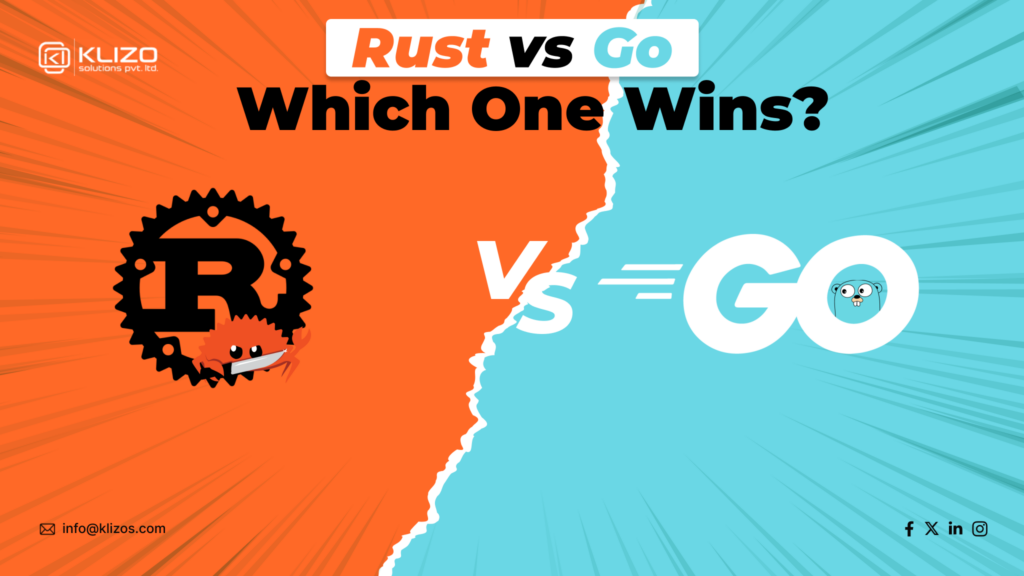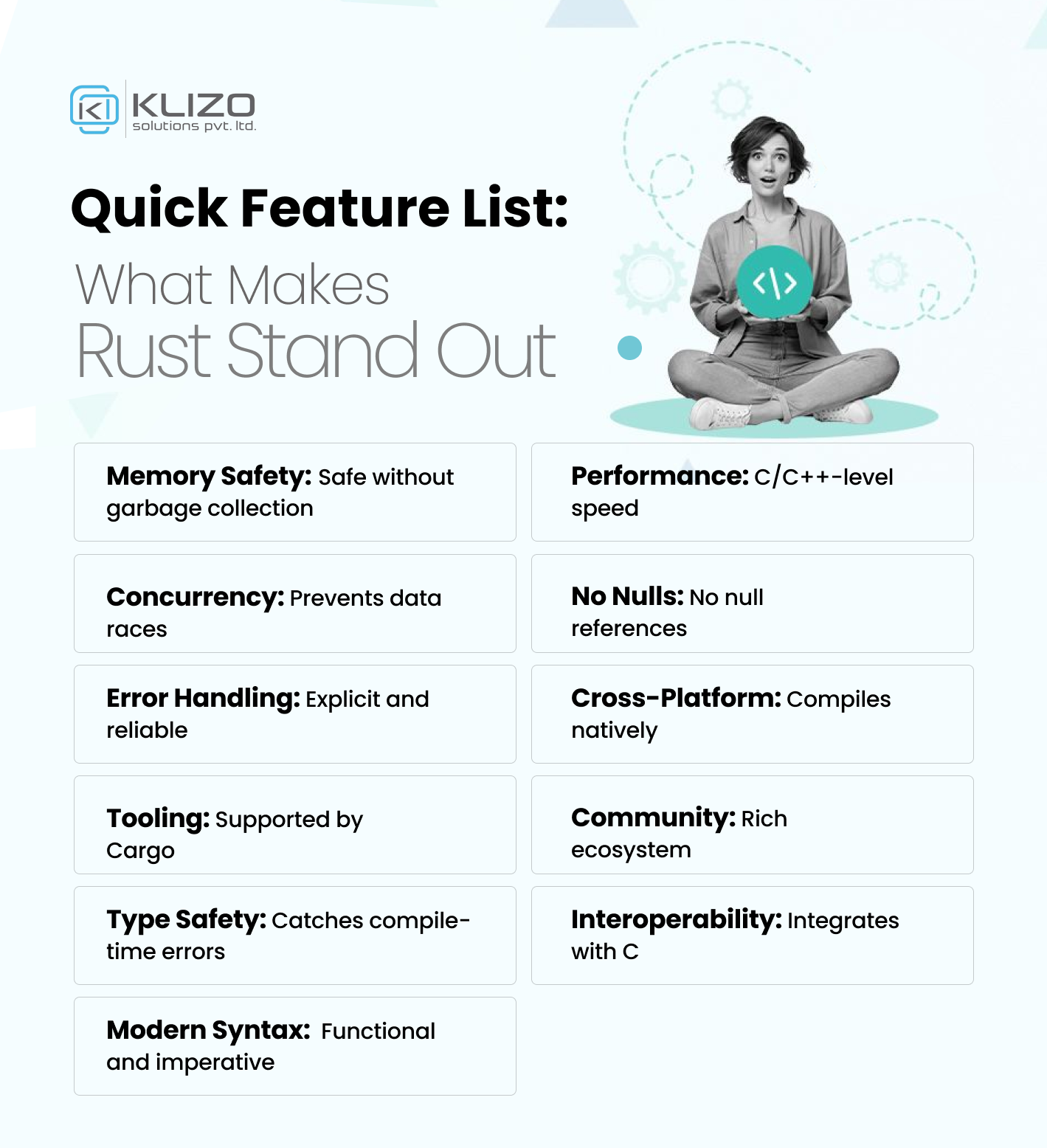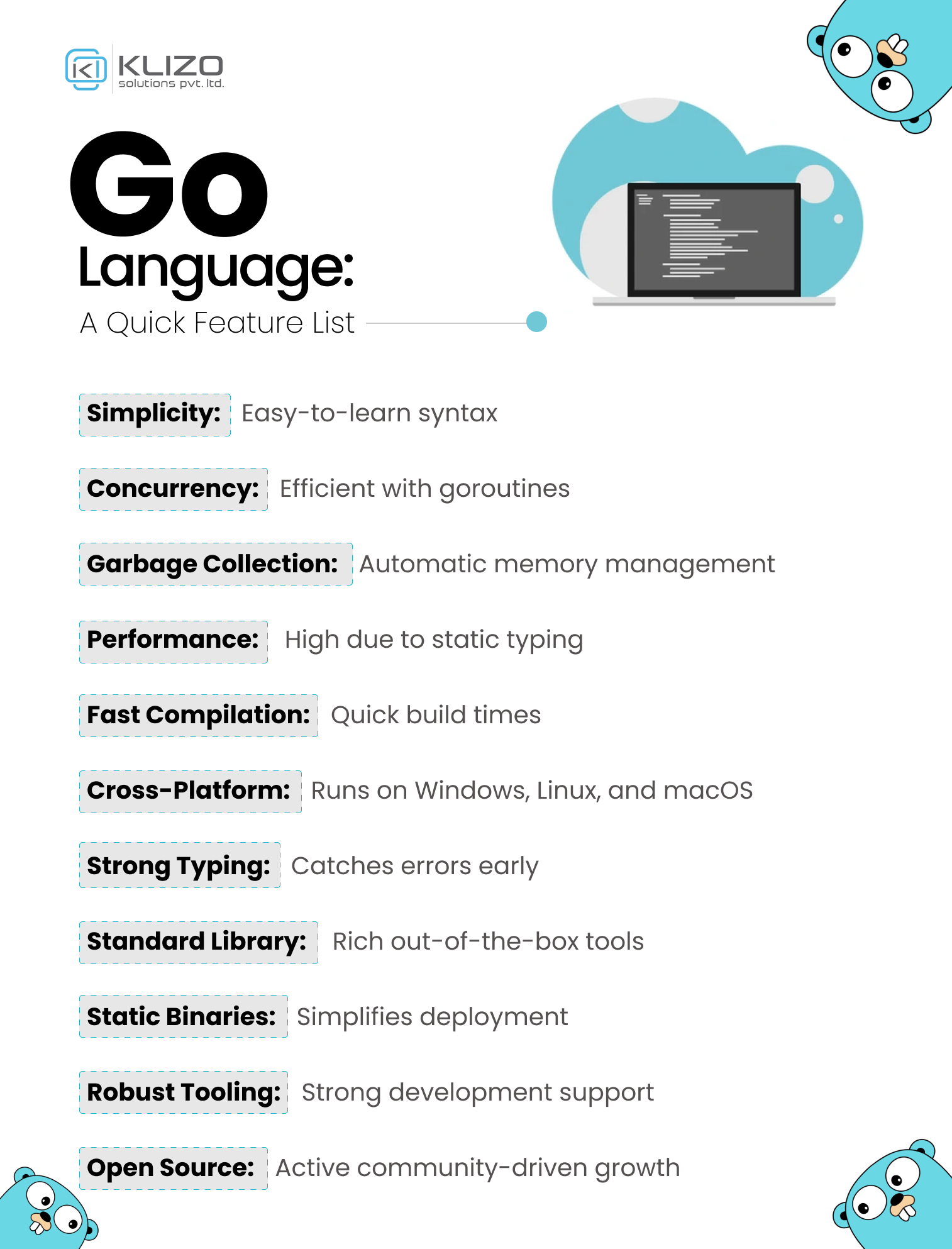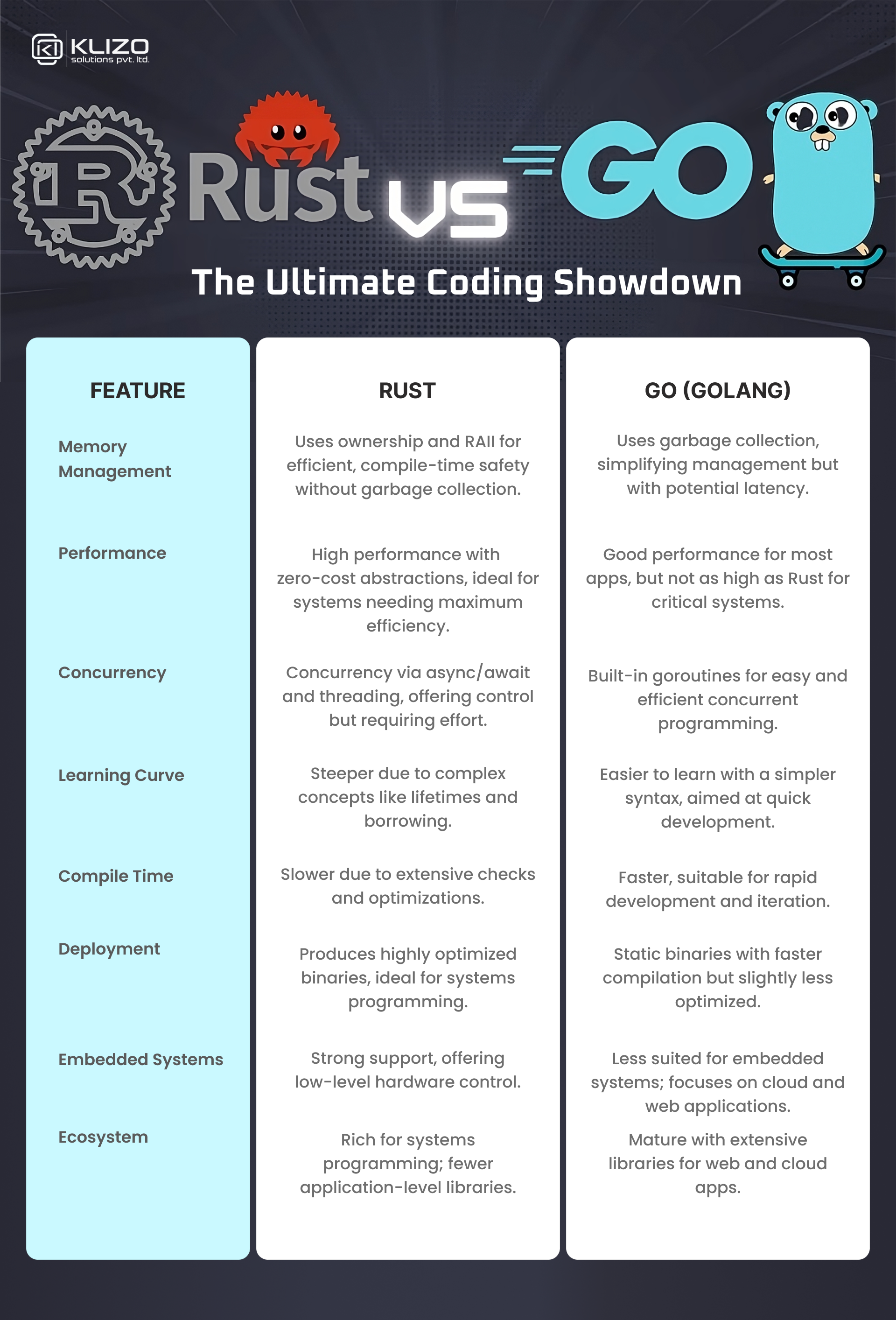


Ever found yourself caught in a coding tug-of-war between two languages?
If you’re nodding, you’re not alone!
The debate of Rust vs Go has been sparking up the programming community like a viral meme!
But before you choose a side, let’s dive into the nitty-gritty of this showdown. Will Rust’s memory safety charm you, or will Go’s simplicity win your heart?
In this article, we’ll compare Rust and Go and dissect these modern languages in a way that’s both enlightening and entertaining—perfect for those who want to make a smart choice without the jargon overload.
And if you’re thinking about leveraging these languages for your next app development project, Klizo’s top-notch app development service is here to turn your ideas into a well-coded reality!
Rust is a systems programming language that’s been making waves in the developer community for its focus on safety, particularly memory safety, without sacrificing performance.
Designed by Mozilla, Rust is like the super-smart, security-conscious friend who’s always looking out for you!
The language prevents common bugs like null pointer dereferencing and buffer overflows, which can lead to security vulnerabilities in other languages.
Developers flock to Rust for several reasons, such as:

Also known as Golang, Go is a statically typed, compiled programming language designed by Google. It was created to solve Google’s internal challenges with large-scale software development, and it’s become known for its simplicity and efficiency.
Think of Go as the minimalist artist of the programming world—clean, straightforward, and highly effective at getting the job done.
Go’s appeal lies in its simplicity and speed, making it a favorite for modern, large-scale applications:

When it comes to modern programming languages, Rust vs Go often sparks debate among developers. Both languages have their strengths, but how do they stack up when it comes to Rust vs Go performance, scalability, and developer experience? This comparative analysis delves into these aspects and more.
Whether you’re building systems-level applications or scalable web services, understanding the nuances of Rust vs Go 2024 will help you make an informed decision for your next project.
When it comes to popularity, both Rust and Go have strong communities, but they shine in different areas. Rust Language vs Go lang often leads developers to choose based on project needs. Rust vs Go community support is robust for both languages, though they cater to different niches.
When comparing Rust vs Go performance, Rust often takes the lead. Rust is designed for speed and control, making it a go-to for system-level programming where every millisecond counts. Is Rust faster than Go? Generally, yes, especially in scenarios where control over memory and execution speed is crucial.
Go, on the other hand, is optimized for simplicity and speed of development. While it may not always match Rust in raw performance, Go vs Rust for web development often sees Go coming out on top due to its efficiency and ease of use in building web servers and applications.
Best language for microservices: Rust or Go? Go excels in scalability and concurrency, which is why it’s favored by companies building scalable web servers, microservices, and cloud applications. Its lightweight goroutines allow developers to handle massive amounts of concurrent tasks without bogging down the system, making it highly scalable.
Rust also supports scalability but requires more effort to achieve the same ease that Go offers. Rust vs Go concurrency models show that while Go’s goroutines are easier to implement, Rust’s ownership model ensures safer concurrency.
Rust vs Go memory management is another key consideration. Memory safety is Rust’s crown jewel. Rust’s ownership system ensures that memory is managed safely and efficiently, preventing issues like null pointer dereferencing, buffer overflows, and use-after-free bugs. This makes Rust particularly well-suited for system-level programming.
Go relies on its garbage collector to manage memory, which simplifies development but can introduce performance overhead. For most applications, Go’s memory management is more than sufficient, but for those requiring strict control over memory, Rust is the better choice.
Rust vs Go ease of use varies significantly. Go is renowned for its developer-friendly experience. Its simple syntax and extensive standard library make it easy to learn and write, which is why it’s often the preferred choice for web development.
Rust vs Go learning curve is steeper for Rust due to its complex syntax and ownership model. However, developers who invest the time to learn Rust often find it rewarding, as it enables them to write highly efficient and safe code.
The debate of Rust vs Go often hinges on what you value more in your programming journey. While Rust shines with its focus on memory safety and performance, making it a go-to for system-level programming, Go’s simplicity and efficiency make it a favorite for web development and concurrent tasks.
Here’s a stat to chew on: In a recent survey, more than 80% of developers who use Rust expressed satisfaction with it, while 90% of developers who used Go were “satisfied” with it.
So you see, both languages are on the rise, so whichever you choose, you’re in good company. When considering Rust Language vs Go Lang, both offer compelling features that can make a difference in your project’s success.

Ultimately, choosing between Rust and Go is like picking between two equally compelling novels—both offer something unique, and the best choice depends on your preferences and project needs.
Still undecided? Why not combine the best of both worlds in your next project?
At Klizo Solutions, our team is adept at utilizing both Rust vs Go, ensuring your app development journey is smooth, efficient, and tailored to your needs.
Let’s code something amazing together!
Previous article
Joey Ricard
Klizo Solutions was founded by Joseph Ricard, a serial entrepreneur from America who has spent over ten years working in India, developing innovative tech solutions, building good teams, and admirable processes. And today, he has a team of over 50 super-talented people with him and various high-level technologies developed in multiple frameworks to his credit.

Subscribe to our newsletter to get the latest tech updates.